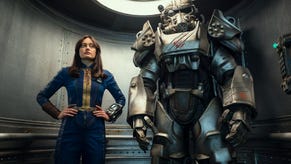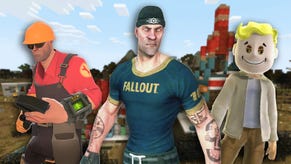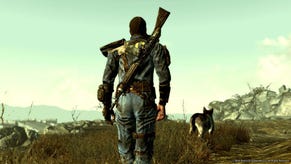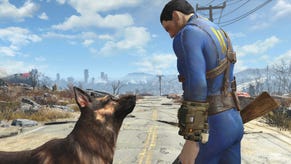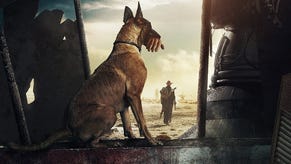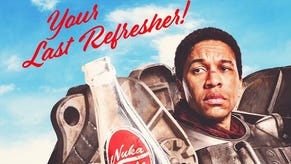Fallout 3
Pete Hines on Bethesda's post-apocalyptic opus.
It's any number of things. If you had to boil it down to one thing, it's definitely the overall theme and tone and setting of Fallout. It was so different and unique from anything else that anyone was doing back then, or really that anybody's done since then. It had this great 1950s vibe and sensibility, but set in a post-nuclear world where things were blown to hell and people were doing anything to survive - but they still cared about their hairstyles. It just that dark comedy and humour. Also, it was a really violent game, and it's nice to be able to do something that is a complete break from the Elder Scrolls. We can't do another fantasy game, because then it's just going to be too similar to Oblivion. [Fallout 3] is going to have some visual similarities to it because it's first person, but beyond that it's a very different game; it's EXP based, not skill based, it's post-nuclear not fantasy, it's guns not swords, so it's just a chance for us to do something very different.
That was certainly out intention. There are some things that we felt were most important to get right, which were the theme and the tone of the games, the setting, and the characters - the really memorable characters, good dialogue, and good story. So those were the things we really tried to focus on. Obviously the combat system is different, not being turn-based, and the perspective is different, but we really felt like there were some things that we could change and still keep Fallout for what Fallout was, some things we felt that we could do differently and bring our own interpretation, our own ideas, to the series.
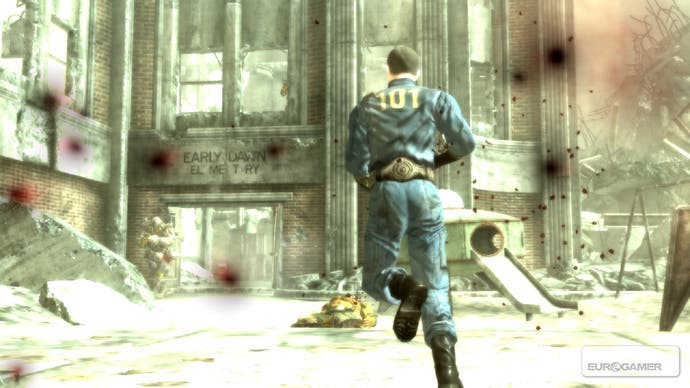
Actually the biggest challenge with Fallout (and the reason that the Achievements are going to have to work very differently) is that we do a lot of locking off of stuff to the player. In Oblivion you can be any kind of character you want, but there are different paths that are more focused towards good or evil or neutral; for instance, if you want to be an evil guy, you go play the Dark Brotherhood and do all that stuff. It's not like 'Oh, well, I'm going to be really evil and do the Fighter's Guild,' because the Fighters Guild are kind of good guys helping people out. It's not like every quest has lots of different ways you can solve it in Oblivion, so it's not like any of those things lock one another out. It's not like you play the Dark Brotherhood and then you can't join the Fighter's Guild. You can do everything, it's just the order in which you do them that can change.
Fallout is very different. There are much fewer quests, and every quest has a number of different ways to complete it, and based on how you do that quest you can open up or lock off things, based on your choices, that will no longer be available or will only be available based on what you've done. We actually monitor your karma as you go through the game based on the choices you're making, and whether you're good, evil or sort of in the grey area, you actually have different gameplay; so for example, what characters accompany you differs based on where your karma is. You also get titles, so like Scourge of the Wasteland if you're this really evil bastard and blew up Megaton [a town near the beginning of the game which you can choose to detonate, or not], and so we'll have some stuff that will be pegged towards how you're playing the game. You'll actually have to replay the game if you want to unlock all the Achievements, you'll have to take another other path where there's other stuff to unlock. Nothing's set in stone, of course, but that's the general idea that we have; it's not going to be just one playthrough to get it all.
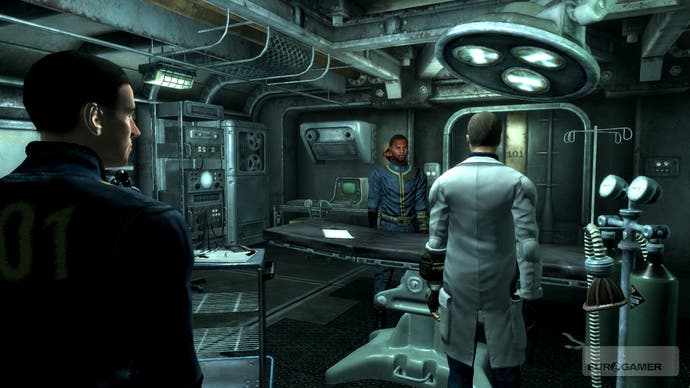
It's about 20 hours main quest, 20 hours side quests and a yet-to-be-determined number of hours for sort of miscellaneous freeform gameplay. There's things that we no longer call formal quests any more, random stuff to do out in the world - Fedex missions on the like where you're picking things up and dropping them off, and random "dungeons" to explore (Pete makes quotemarks around the word 'dungeons' with his fingers, which, according to our extensive knowledge of young-person culture, suggests he's using the term loosely), so there's lots of hours of gameplay there as well. We're talking about a really huge world, with tonnes of things to do, but yeah, compared to Oblivion, it's smaller.
Actually Fallout 3 is probably much more freeform than Oblivion - I mean there's 9 to 12 different endings, it's not going to be the same for anyone. What you do, all those different choices you make, is going to ultimately determine how your game progresses and ends

